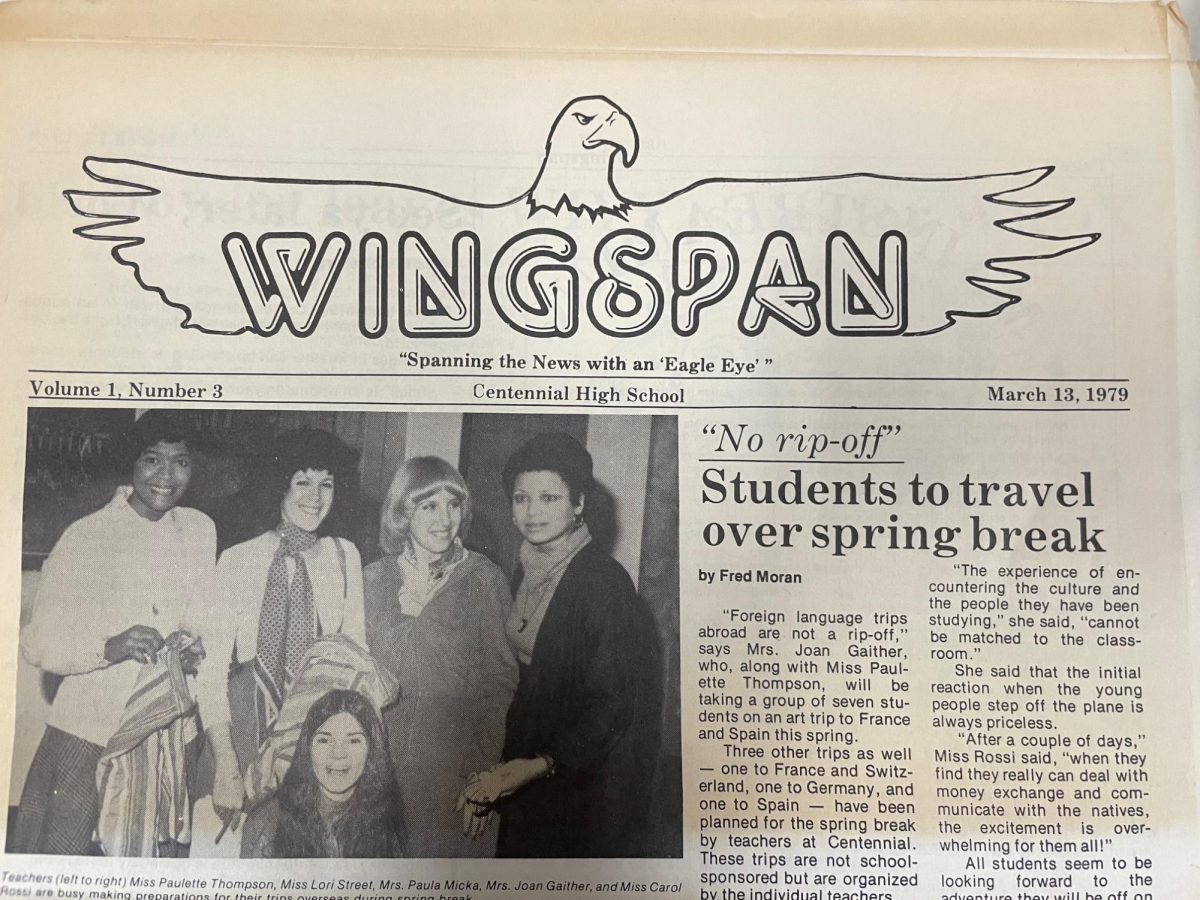Words: Miranda Mason
Centennial students are being encouraged more than ever before to enroll in Advanced Placement (AP) classes as the Howard County Public School System (HCPSS) works towards Vision 2018, a plan to fulfill their promise of preparing every student to take on the challenges they will face after high school.
Vision 2018 aims to challenge students, inspire them to learn and empower them to reach their goals. According to the Vision 2018 Plan, HCPSS’ goal for students is for them to achieve academic excellence. The Plan sets out 11 performance measures for this goal, one of which is through participation and performance in AP courses.
Centennial Principal Claire Hafets is a strong supporter of encouraging every student to take an AP class before graduating, and she believes that participation in AP courses will help students towards the goals set out in Vision 2018. According to Hafets, HCPSS research shows that students who take at least one AP course, even if they score a 2 on the exam, will perform better in college than a student who did not take an AP.
“93% of Centennial students go to college,” said Hafets. “We owe it to those students to make sure they know what it is like.”
What an AP course is like is decided by the College Board, which approves the curriculum for AP classes, as well as writes the exam given in May. AP courses are designed to put high school students in a college-level class, and so the curriculum is made to be rigorous and challenging. This provides a good opportunity for college-bound students who are ready for a taste of college-level rigor, but some have concerns whether an AP is right for every student.
“Not everybody is going to college, and in my opinion, it doesn’t make sense for every student to take an AP,” said physics teacher Stanley Eisenstein.
“I think for some students it is too stressful and not appropriate,” said art teacher Nan Collins. “I agree with the concept of challenging students; I worry about students struggling in a class that is over their heads. They won’t be earning the grades they need or want.”
Collins’ concern that everyone may not be ready for a college-level course in high school is reflected in the thoughts of some students. Junior Alicia Townsend has not taken any AP classes, and does not plan on taking any in her senior year, in part because she is worried about the rigor of an AP course.
“I think it would be too difficult because of the tests and how fast the class goes by,” said Townsend.
Hafets is aware that not every student is ready for an AP class right now, and she has a plan to ensure students making the jump to AP are in a class that will meet their needs. According to Hafets, Centennial will attempt to match students who may not be at an AP level at the beginning of next year with teachers who will be able to scaffold the information. In these classes, the pace may start out at a level the students are ready for, but as the year goes on, those students will still reach the level of rigor demanded by the curriculum.
“These are students who may have been in honors. They can work their way up in the year so they’re ready by May,” said Hafets. “The curriculum is still rigorous, even if the information is scaffolded.”
Hafets believes that a student who starts with a regular course in their first year of high school will be able to work their way towards an AP course in their senior year by advancing one level each year. There is also an HCPSS committee that is looking into barriers to reaching the goals set out in Vision 2018, and student readiness for AP courses will be among the items discussed, according to Hafets.
Student readiness is not the only concern raised by the move towards more APs. Collins believes the College Board benefits the most from participation in AP courses and questions whether AP courses are the best way to challenge students.
“The real profiteer is the College Board. They get money for every student who takes the AP exam. I think it’s all about trying to rank our school, and I think the ranking system is flawed,” said Collins. “I’m very interested in the International Baccalaureate program, and I think that could be a serious way to challenge students.”
A big attraction of AP courses for many students is that a good score on the exam could be accepted as college credit. However, another concern raised by some is whether or not students will actually be able to count the exams toward fulfilling credits in college. According to Collins, some schools do not accept AP scores as a replacement for taking the class, especially art schools.
Hafets believes that even if students’ exam scores won’t be accepted, taking an AP class is still worth it in the long run.
“It’s not about whether the college is going to accept the credit. It’s really about challenging yourself,” said Hafets. “Everybody has a strength and a passion. Why not challenge the student in that area?”
According to Hafets, as of Feb. 24, there has been an increase in enrollment of AP classes for the 2014-2015 school year, with many students signing up for AP social studies and math classes. There has also been a decrease in enrollment in fine arts classes.



